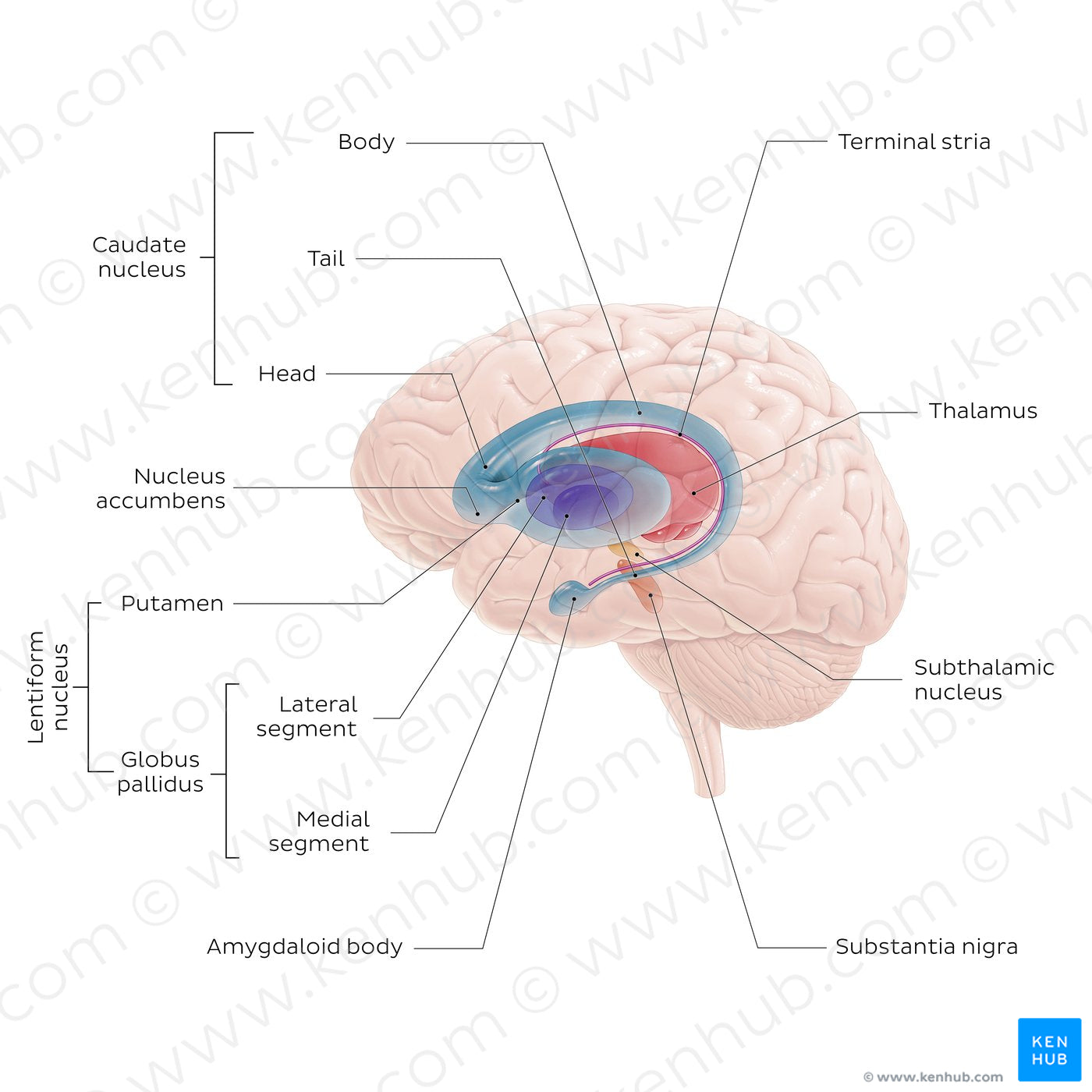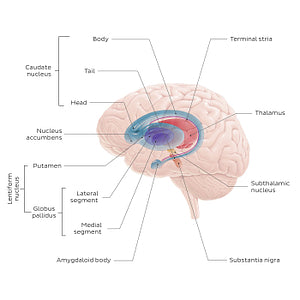Paul Kim
Basal ganglia (English)
Basal ganglia (English)
Left lateral perspective of the brain, with left instances of the basal ganglia represented. The caudate nucleus is an elongated, C-shaped structure that consists of the head, body and tail. The tail extends anteriorly/rostrally as far as the amygdala or amygdaloid body, which is not part of the caudate nucleus. Located close to the head of the caudate nucleus is the nucleus accumbens, a structure involved in the perception of pleasure that is considered to be a part of the limbic system. Continuous with the head of the caudate nucleus is the putamen, a rounded nucleus which is the most lateral component of the basal ganglia. The globus pallidus is situated medial to the putamen and is divided into lateral (or external) and medial (or internal) segments. Also represented in the image are two important structures functionally related to the basal ganglia: the subthalamic nucleus and the substantia nigra, located in the subthalamus and midbrain, respectively. Central in this image and lying medially to the basal ganglia is the thalamus. The thalamus has important connections with the basal ganglia.
Regular price
$7.56 USD
Regular price
Sale price
$7.56 USD
Unit price
per
Couldn't load pickup availability


#D1555D
#5791AB
#2B586C
#53535B
#F3C9B7
#D1B0C5

